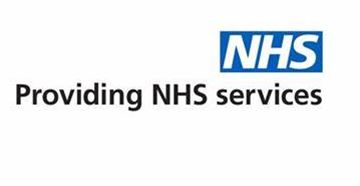Self-isolation
Self-isolation
What is self-isolation?
Self-isolation involves doing the following. You must:
- Not leave your home for any reason and try to stay 2 metres (3 steps) away from other people in your household
- Wash your hands thoroughly and frequently to avoid passing on the virus
- Not go out to buy food or collect medicine. Please ask someone else to drop them off at home. Avoid face to face contact as much as possible
- Not have visitors, such as friend or family, in your home and do not visit anyone.
Who should self-isolate?
Self-isolation is for people who have symptoms of Coronavirus (new continuous cough +/- high temperature) or live with someone who does.
A new continuous cough is defined as coughing excessively for more than an hour, or 3 or more coughing episodes in a 24 hour period. If you usually have a cough then you should be looking for a cough that is worse than your usual baseline.
A high temperature is defined as 37.8 degrees or higher. If you do not have a thermometer then you might note that you feel hot to touch on your chest or back. When checking a temperature it is useful to use the back of your hand to feel rather than the palm.
There are other symptoms of the virus that we are learning more about. Losing your sense of smell and getting short of breath are two other symptoms to watch out for. If you suspect you might have coronavirus it is safer to be more cautious and self-isolate.
How long should I self-isolate for?
The answer to this depends on if you have coronavirus or are living with someone who does
If you have symptoms of coronavirus, you need to self-isolate for at least 7 days. After 7 days if you do not have a high temperature, you do not need to self-isolate any longer. If you still have a temperature, you must continue to self-isolate until your temperature returns to normal.
If you live with someone who has symptoms of Coronavirus, then everyone in that house will need to self-isolate for 14 days from the day the first person’s symptoms started. This is where most people go wrong and get confused especially if you have children who get a temperature. Temperature symptoms in children are very common but at the present time, the recommendation applies to children as well so if any child at home gets a cough or temperature than the whole household needs to self-isolate.
The reason for 14 days self-isolation for the household is due to the time it may take for someone to develop the disease and show symptoms. If during the 14 days self-isolation you should develop any symptoms suggestive of coronavirus then you will need to self-isolate for 7 days from the date of onset of symptoms.
Should I get medical help if I am self-isolating and have/might have coronavirus?
The simple answer to that is no. For the vast majority of people who get coronavirus, the symptoms will last about a week or so and start to improve. However, for some people their symptoms may start to deteriorate and get worse. These people should get medical help either through NHS111 or through us.
Hospitals are still open, but we are trying to reduce the number of people going to hospital currently. If there is an absolute emergency, you can attend A&E, but please think very carefully about whether it is an emergency. You can contact NHS111 and us if you are unwell and need help or are not sure what to do.
How do I know if I have coronavirus and can I get a test through my GP surgery?
All testing is done by the hospital and at present it is only being used for people being admitted to hospital and for front line medical staff with symptoms who might otherwise be taken away from important clinical roles. We cannot organise tests for you.
Page created: 05 November 2020
